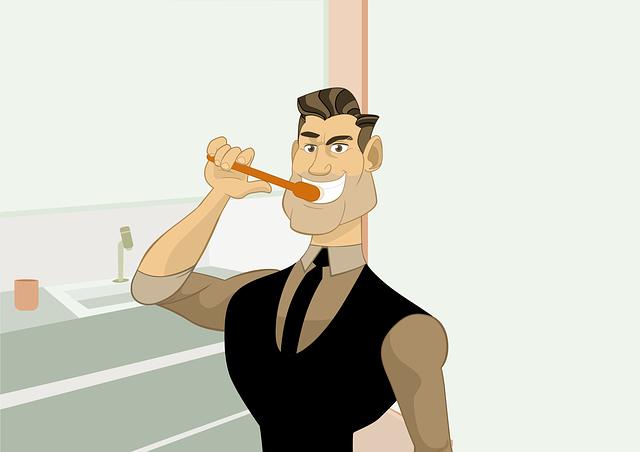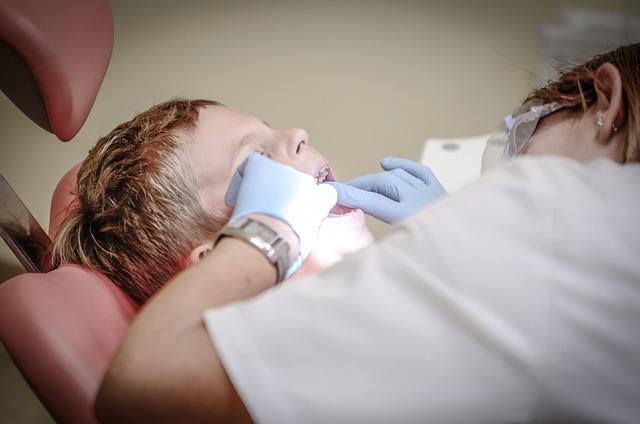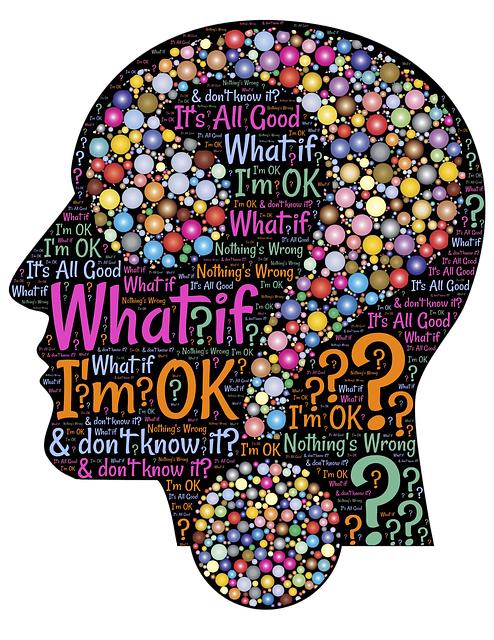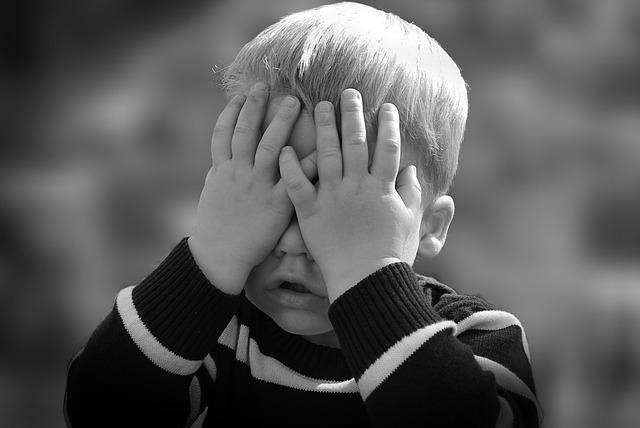Bruxism and chipped teeth often go hand in hand, but is this dental damage considered accidental? Let’s explore the connection.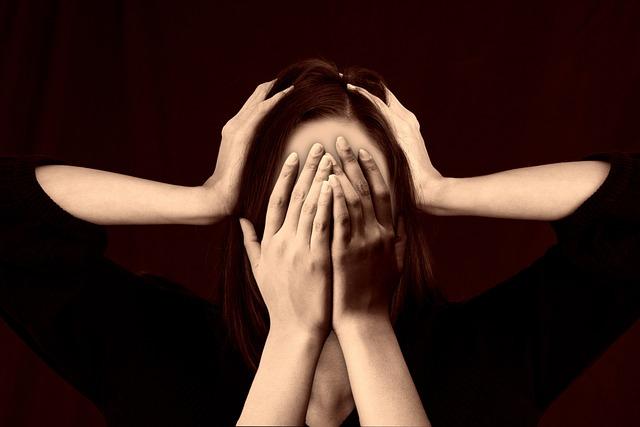
1. Understanding Bruxism: The Unconscious Dental Habit Behind Accidental Damage
Bruxism, commonly known as teeth grinding or clenching, is an involuntary oral habit that affects a significant number of individuals worldwide. This hidden dental problem often goes unnoticed, as it typically occurs unconsciously during sleep or as a result of stress and anxiety. Despite its benign sounding name, bruxism can have serious consequences on oral health if left untreated.
Here are a few key facts to help you gain a better understanding of this condition:
- Prevalence: Bruxism affects both children and adults, with statistics indicating that around 15% to 20% of the adult population experiences this condition at some point in their lives.
- Causes: The exact cause of bruxism remains unclear, but it is believed to be a combination of genetic, psychological, and lifestyle factors. Stress and anxiety, misaligned teeth, or even certain medications can contribute to its development.
- Signs and Symptoms: Identifying bruxism can be a challenge, as it largely occurs during sleep. Common signs to watch out for include frequent headaches, jaw pain, tooth sensitivity, worn down teeth, and cracks or fractures in dental restorations.
- Complications: Bruxism can lead to an array of dental issues if left untreated. These may include excessive tooth wear, TMJ disorders, gum recession, and even tooth loss. Therefore, early detection and proactive treatment are crucial in preventing further damage.
Understanding the nature and impact of bruxism can help you take necessary measures to protect your oral health. If you suspect you or a loved one may be affected by this condition, consulting a dental professional is highly recommended for accurate diagnosis and appropriate management.
2. Exploring the Link: Is Chipping Caused by Bruxism Considered Accidental Dental?
Chipping of the teeth is a common dental issue that can occur due to various factors. One potential cause of chipping is bruxism, also known as teeth grinding or clenching. Bruxism can put excessive pressure on the teeth, leading to enamel wear and eventually chipping. However, whether chipping caused by bruxism is considered accidental dental damage is a topic that warrants exploration.
- Understanding bruxism: Bruxism typically occurs unconsciously, often during sleep, but can also happen while awake. It is a repetitive jaw muscle activity that involves grinding, gnashing, or clenching of the teeth. People who grind their teeth may do so due to stress, anxiety, misaligned teeth, or an abnormal bite.
- Is chipping considered accidental dental damage? The determination of whether chipping caused by bruxism is classified as accidental dental damage may vary. In some cases, accidental dental damage refers to an unforeseen incident caused by an external force, such as a physical injury or trauma, that leads to chipping. However, some dental insurance policies consider chipping caused by bruxism as unintentional damage, rather than accidental damage.
- Consulting a dental professional: If you notice chipping of your teeth and suspect it may be caused by bruxism, it is crucial to consult a dental professional. They can assess the extent of the damage, diagnose bruxism, and recommend appropriate treatment options. Treatment may involve a mouthguard or dental splint to protect the teeth from further chipping, as well as addressing the underlying causes of bruxism.
3. Debunking the Myth: Bruxism and Unintentional Dental Damage
Bruxism, commonly known as teeth grinding or clenching, is a condition that affects many individuals. One prevailing myth surrounding bruxism is its link to unintentional dental damage. However, it is essential to debunk this misconception and shed light on the true effects of bruxism on dental health.
Contrary to popular belief, bruxism itself does not directly cause dental damage. In fact, teeth grinding or clenching typically occurs during sleep when individuals are unaware of their actions. The real culprit lies in the excessive force exerted on the teeth during these episodes. Over time, this force can lead to various dental problems, including:
- Tooth wear: The constant grinding or clenching can gradually wear down the enamel, resulting in tooth sensitivity, flat or chipped teeth, and even tooth fractures.
- Temporomandibular joint (TMJ) disorders: Bruxism can strain the jaw joints, leading to TMJ disorders characterized by facial pain, headaches, and difficulty opening or closing the mouth.
- Gum recession: Excessive pressure on the gums can cause them to recede, exposing the tooth roots, which may increase the risk of tooth decay and sensitivity.
Although bruxism itself may not be the direct cause of dental damage, it is crucial to address the underlying issue to prevent any long-term consequences. Seeking professional dental advice and considering appropriate treatments, such as wearing a custom nightguard, can significantly reduce the impact of bruxism on dental health and overall well-being.
4. Dental Erosion Unveiled: How Bruxism Can Lead to Accidental Chipping
Dental erosion is a common problem that many people face, but its underlying causes may not be widely known. One of the surprising culprits behind dental erosion is bruxism, a condition characterized by teeth grinding or clenching during sleep. While bruxism is often associated with teeth grinding, it can also lead to accidental chipping of the teeth.
How does bruxism cause dental erosion?
- Excessive force: Bruxism exerts intense pressure on the teeth, causing them to rub against each other vigorously. This repeated grinding wears down the protective enamel layer, leaving the teeth vulnerable to erosion.
- Weakened enamel: The persistent grinding weakens the enamel over time, making it more susceptible to breakdown. Once the enamel is compromised, the underlying dentin layer can be easily exposed, increasing the risk of chipping.
- Friction and heat: The constant friction generated by bruxism can generate heat, leading to temperature variations in the mouth. These fluctuations can weaken the tooth structure and contribute to chipping.
Prevention and treatment:
- Protective mouthguard: Wearing a custom-fit mouthguard during sleep can help prevent dental erosion caused by bruxism. This creates a barrier between the upper and lower teeth, minimizing the damaging effects of grinding.
- Stress management: Stress is often a major trigger for bruxism. Practicing relaxation techniques, such as meditation or deep breathing exercises, can help alleviate stress and reduce the likelihood of teeth grinding at night.
- Regular dental check-ups: Routine dental visits are crucial in detecting bruxism or dental erosion early. Your dentist can assess the extent of the damage and provide suitable treatment options such as dental bonding or veneers for chipped teeth.
If you suspect you may have bruxism or are experiencing chipped teeth, it is important to consult your dentist promptly. By addressing bruxism and its potential consequences, you can effectively protect your teeth from accidental chipping and maintain a healthy smile.
5. Uncovering the Culprit: Bruxism as a Hidden Cause of Accidental Dental Injuries
Accidental dental injuries can happen to anyone unexpectedly, but what if we told you that there might be a hidden cause behind these incidents? Brace yourself, because bruxism might just be the culprit you never saw coming. Bruxism, also known as teeth grinding or clenching, is a common condition that often goes unnoticed. Understanding the impact of bruxism on accidental dental injuries is essential for successful prevention and treatment.
Why is bruxism a hidden cause? Well, the tricky thing with bruxism is that most people don’t realize they are doing it. It commonly occurs during sleep or when under stress, making it difficult to identify the root cause of dental injuries. However, the consequences of bruxism are far from invisible. Excessive grinding or clenching can lead to fractured teeth, receding gums, jaw pain, headaches, and even temporomandibular joint (TMJ) disorders. These dental mishaps can occur both during the day and at night, warranting prompt attention.
- What are the signs of bruxism? Jaw pain or soreness, especially upon waking up, is a common indicator. You might also experience sensitive teeth, worn tooth enamel, or difficulty in opening or closing your mouth fully. If you notice any of these symptoms, it’s advisable to consult your dentist and discuss the possibility of bruxism.
- How can bruxism be managed? Several treatment options are available, depending on the severity of your condition. Your dentist may recommend a custom-made night guard to protect your teeth while you sleep, relaxation techniques to reduce stress, or lifestyle changes such as avoiding foods and drinks that contain caffeine.
- Preventing dental injuries caused by bruxism is crucial. Apart from seeking professional help, consciously avoiding habits like chewing on pens or biting hard objects can reduce the risk of accidents. Additionally, practicing stress management techniques such as exercise, meditation, or counseling can contribute to overall oral health and well-being.
6. Assessing the Severity: Bruxism-Related Chipping and Accidental Dental Claims
Bruxism, the involuntary grinding or clenching of teeth, can lead to various dental issues, including chipping and accidental damage. Assessing the severity of bruxism-related chipping and accidental dental claims is crucial to provide appropriate treatment and insurance coverage. Here are key factors to consider when evaluating these claims:
- Extent of damage: Determine the size and depth of the chipped tooth or accidental injury to evaluate the severity and potential treatment options. Conduct a thorough examination and gather relevant X-rays or diagnostic imaging.
- Underlying causes: Bruxism can result from stress, misaligned teeth, or other medical conditions. Identify the root cause to address the underlying issue and prevent further damage.
- Patient’s oral health: Assess the overall oral health of the patient, including the condition of adjacent teeth, gums, and jaw function. This evaluation helps in determining potential complications and appropriate treatment plans.
By considering these factors and employing a comprehensive approach, dental professionals can effectively assess the severity of bruxism-related chipping and accidental dental claims, ensuring the best possible care and outcome for patients.
7. Seeking Compensation: Legal Implications of Bruxism-Induced Accidental Dental Damage
When bruxism, or teeth grinding, leads to accidental dental damage, seeking compensation for the resulting expenses can be a valid course of action. However, there are important legal implications to consider before pursuing a legal claim. Understanding these implications can help individuals assess their options and make informed decisions regarding compensation.
1. Liability: Determining liability is crucial in bruxism-induced accidental dental damage cases. To establish liability, it must be proven that someone else’s negligence or wrongful actions caused or contributed to the damage. This could include factors such as a dentist’s failure to diagnose or treat bruxism, a manufacturer’s defect in a dental appliance, or inadequate warnings provided by a treatment provider.
2. Statute of Limitations: It is important to be aware of the statute of limitations, which refers to the time limit within which legal action must be initiated. Failing to file a claim within this timeframe can result in the loss of one’s right to seek compensation. It is advisable to consult with a legal professional to determine the specific statute of limitations applicable to the case.
3. Damages: In bruxism-induced accidental dental damage cases, compensation can be sought for various types of damages, including medical expenses, pain and suffering, loss of consortium, and future dental treatment costs. Collecting evidence of the damages suffered is necessary to support the claim for compensation.
8. Prevention is Key: Managing Bruxism to Mitigate the Risk of Accidental Chipping
Bruxism, or teeth grinding, can be a major contributor to the risk of accidental chipping. To prevent this from happening and protect your teeth from unnecessary damage, it is crucial to manage bruxism effectively. Here are some useful tips:
- Use a mouthguard: Wearing a custom-fitted mouthguard while sleeping can provide a protective barrier between your upper and lower teeth, reducing the impact of grinding and preventing accidental chipping.
- Stress management techniques: Since stress often exacerbates bruxism, finding healthy ways to manage stress can be instrumental in reducing teeth grinding. Consider incorporating relaxation techniques such as yoga, meditation, or breathing exercises into your daily routine.
- Avoid stimulating substances: Certain substances like caffeine and alcohol can contribute to teeth grinding. Limiting or avoiding their consumption, particularly in the evening, can help minimize the risk of bruxism.
- Correct your sleeping posture: Maintaining a proper sleeping position can alleviate pressure on your jaw and reduce the likelihood of teeth grinding. Try to sleep on your back and ensure your head and neck are properly supported by using a supportive pillow.
- Regular dental check-ups: Dental professionals can identify early signs of bruxism and provide tailored advice to manage it effectively. Schedule regular check-ups to monitor your dental health and address any potential issues promptly.
By following these preventive measures and taking proactive steps, you can effectively manage bruxism and significantly reduce the risk of accidental chipping. Your dental health is vital, so take the necessary steps to protect it!
9. On the Road to Recovery: Restorative Options for Bruxism-Related Dental Damage
There is hope for individuals suffering from dental damage caused by bruxism. Here, we will explore some restorative options available to help you regain your oral health and restore your smile. With the right treatment, you can alleviate the symptoms associated with bruxism and prevent further damage to your teeth and jaws.
In order to restore your teeth, your dentist may recommend one or more of the following options:
- Dental Crowns: These tooth-shaped caps are placed over damaged teeth to restore their size, shape, and strength. Crowns are crafted to blend seamlessly with your natural teeth, providing a long-lasting solution.
- Dental Bonding: By applying a tooth-colored resin directly to the damaged tooth, your dentist can repair minor chips, cracks, and discolorations. Bonding is a quick and cost-effective option that yields excellent aesthetic results.
- Dental Implants: For severe cases of dental damage or tooth loss due to bruxism, dental implants offer a permanent and durable solution. These artificial tooth roots are surgically placed into the jawbone and topped with a custom-made crown, providing a natural-looking and functional replacement.
No matter which restorative option is recommended in your case, it’s essential to address the underlying cause of bruxism to prevent further damage. Your dentist may suggest wearing a custom-made nightguard while you sleep, which helps cushion and protect your teeth from grinding and clenching forces. Additionally, stress management techniques and lifestyle modifications can contribute to successful recovery.
10. Empowering Patients: Educating and Raising Awareness about Bruxism’s Accidental Dental Consequences
Bruxism, the involuntary grinding or clenching of teeth, can have detrimental effects on your dental health. It is our mission to empower patients by educating and raising awareness about the accidental dental consequences of this condition.
Here are some key points to help you understand the potential harm bruxism can cause:
- Tooth Damage: Bruxism puts excessive pressure on your teeth, leading to worn-down enamel, tooth fractures, and even tooth loss.
- Jaw Problems: The constant grinding motion can strain the jaw muscles, causing jaw pain, headaches, and temporomandibular joint disorder (TMJD).
- Gum Recession: Bruxism can result in the recession of gums, exposing the sensitive tooth roots and increasing the risk of tooth decay and gum disease.
- Sleep Disruption: Many bruxism sufferers experience disrupted sleep patterns, leading to fatigue and decreased quality of life.
By understanding these consequences, you can take proactive measures to mitigate the effects of bruxism. We recommend seeking professional dental advice if you suspect you have bruxism or notice any of these symptoms. Together, we can raise awareness, educate patients, and empower individuals to protect their dental health.
In conclusion, chipping caused by bruxism is not typically considered accidental dental damage. By understanding the relationship between bruxism and chipping, patients can take proactive steps to protect their dental health. Regular dental check-ups and using a protective mouthguard can help prevent further damage. Remember, early intervention is key to maintaining a healthy smile. Stay informed and prioritize your oral hygiene!

